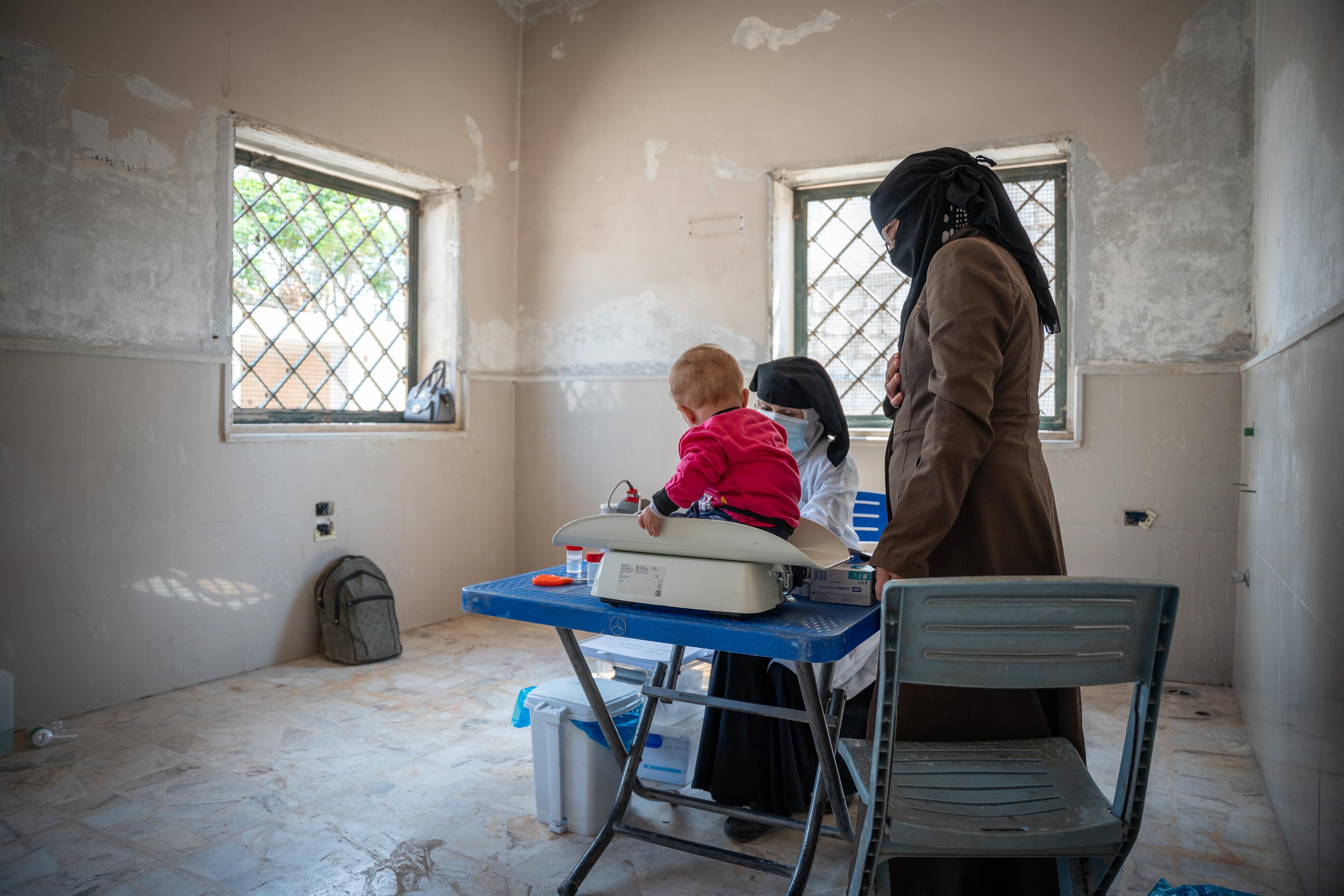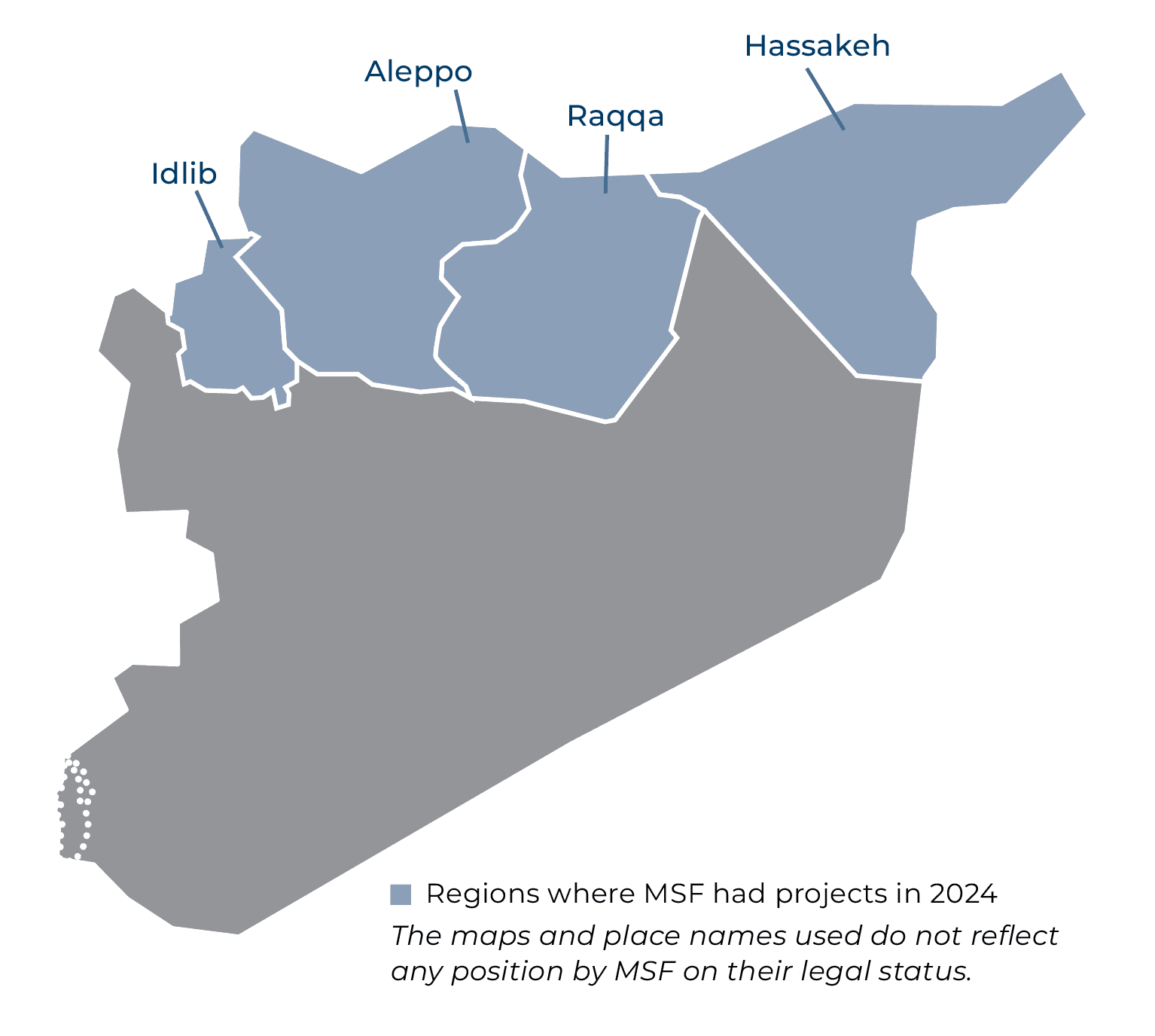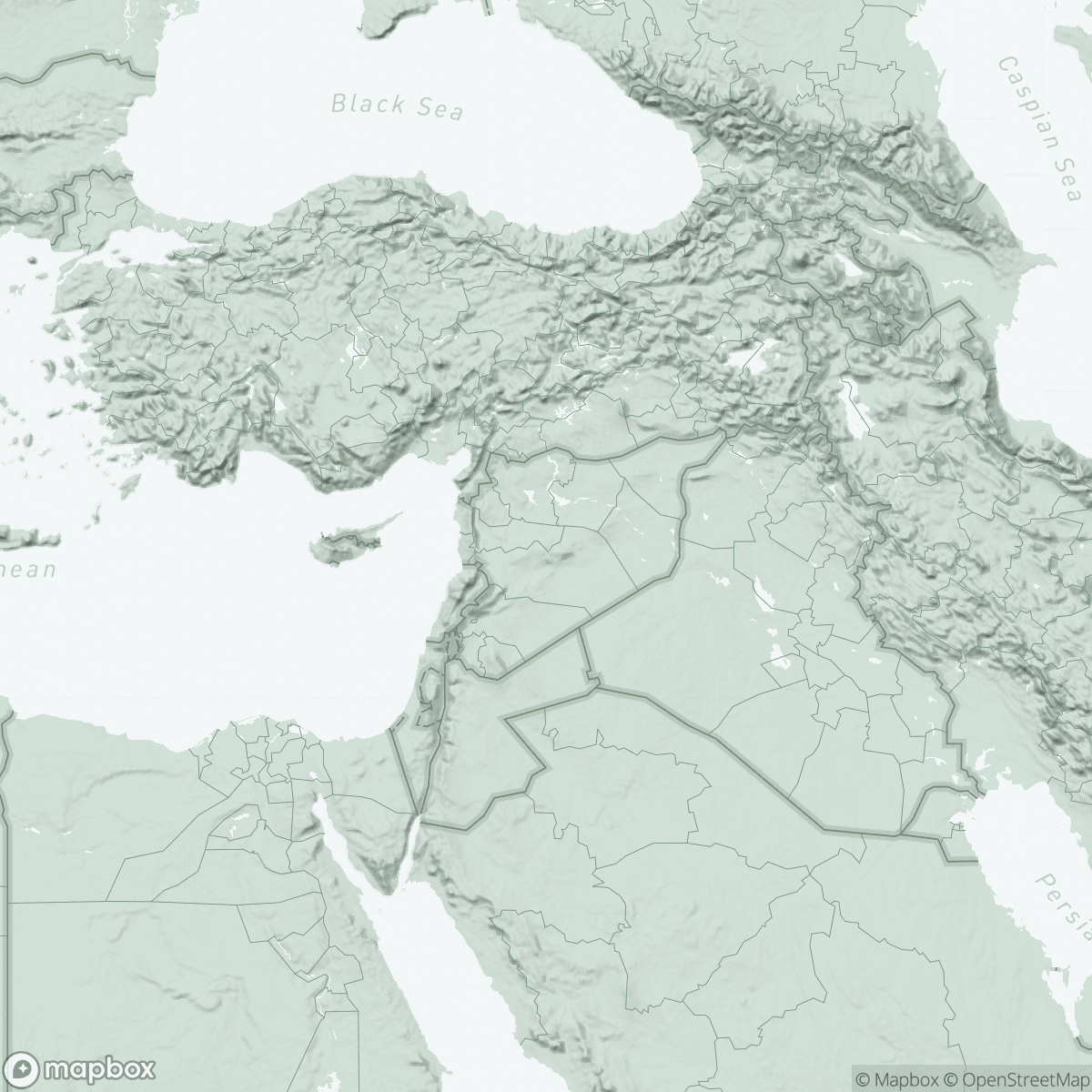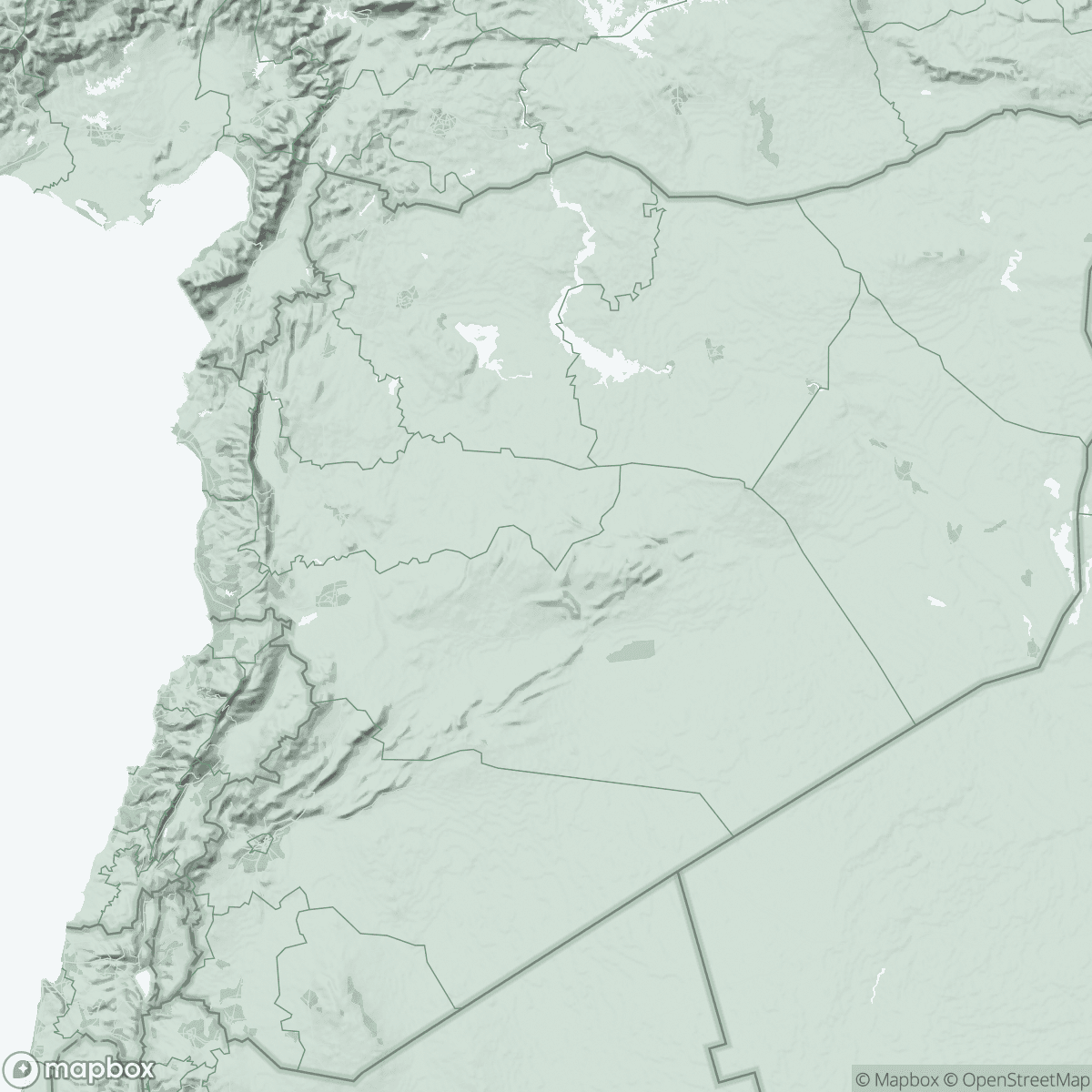
Syria
Following the fall of the Syrian government in December 2024, Médecins Sans Frontières (MSF) was finally able to enter Damascus and deliver much-needed healthcare, for the first time in over a decade.
Latest news from Syria
Updated March 31, 2025
With recent political developments leading to the fall of the Syrian government on 8 December 2024, Syria is undergoing significant political change. Tensions between different groups remain unresolved, contributing to instability and representing an additional major obstacle for displaced people trying to return home.
The security situation complicates the delivery of humanitarian assistance, making it difficult for organizations to effectively deploy aid:
- According to the UN, 16.7 million Syrians are in need of humanitarian assistance, the highest level since the crisis began in 2011.
- More than half of Syria’s pre-war population remains displaced. This figure includes more than 5 million refugees residing in neighboring countries and more than 7.2 million internally displaced people.
- Since 8 December 2024, a total of 58,350 Syrians have returned to Syria, mainly from Lebanon, Jordan and Turkey.
Recent changes in the Syrian political landscape have forced MSF to reassess its plans and presence in Syria. While it is still too early to make major operational decisions, MSF is actively assessing needs in areas where MSF was not previously present, including major cities and underserved rural areas where humanitarian needs are significant and often overlooked. At the same time, MSF remains committed to maintaining its current projects in Idlib, Aleppo, Hassakeh, Al-Hol camp and Raqqa.
After nearly 14 years of war, humanitarian and medical needs in Syria remain high, but funding is dwindling significantly.
Aid is crucial for preventing further deterioration. MSF calls on the US government and EU member states to resume and increase funding support to ensure stability in the country, and to allow for a comprehensive response to the millions of Syrians in need of humanitarian assistance.
Three months after the fall of former government, MSF has been providing critical healthcare and relief to Syria’s most vulnerable people. The medical and humanitarian needs remain immense given years of conflicts, which continue to flare up sporadically. However, the decrease in funding and large-scale budget cuts are exacerbating people’s hardship. These funding cuts are already limiting humanitarian aid efforts and will restrict the much-needed response for people in need.
There is a critical disconnect between the escalating needs and the available funding and resources.
Receiving medical care for Syrian people is becoming an overwhelming challenge. MSF is witnessing hospital closures, threats of further shutdowns, and an increasing number of patients struggling to receive care as the remaining facilities become increasingly overburdened.
In northwest Syria, more than 100 primary health care centers (PHCCs), nine general hospitals, 23 specialized hospitals, and more than 30 specialized care centers are expected to be out of funds by the end of March. In the whole of Syria, the Health Sector estimates that 711 (40% of the total) health facilities have suspended or reduced capacity due to the US funding freeze: (49 hospitals, 572 PHCCs, 41 mobile clinics, and 49 other health services.
To address the surge in patient numbers and rising bed occupancy rates, MSF expanded one of its hospital’s capacity in early February in Idlib governorate, adding more medical staff and beds. However, in the long run, the increased patient influx will strain drug consumption rates. This is just an example from one MSF hospital, other hospitals in Syria don’t have the luxury of expanding their capacity due to increasing needs. Instead, they are forced to close their doors and deprive people from lifesaving care.
The closure of hospitals in northwest Syria due to donor’s funding cuts, including USAID, has further restricted access to paediatric and maternity health care in Idlib governorate. As a result, MSF has recorded 141% increase in inpatients paediatric admissions at Salqin hospital in Idlib governorate, between December 2024 and February 2025, along with a 17% increase in maternity admissions and a 7% increase in deliveries by late January.
Access to primary healthcare is critically limited, with many essential services unavailable. The 14-year war has compromised the quality of care due to shortages in medical staff, lack of essential medications for acute illnesses and insufficient supplies.
Without an urgent and substantial increase in funding, in volume, coverage, and timeliness, the Syrian health system will face devastating consequences, severely undermining people’s ability to access essential medical services.
Despite the cessation of large-scale hostilities in Syria, the displacement crisis, once considered as the world’s biggest displacement crisis, is still far from over.
MSF calls for increased support to respond to the urgent needs of internally displaced Syrians. With 7.4 million people who remain displaced, 2.1 million people reside in just 1,736 displacement sites, while 5.2 million live outside of these sites. The camps are overcrowded, with poor living conditions and inadequate access to water, sanitation, and hygiene facilities. The medical and humanitarian needs of displaced people are massive, spanning from maternal and child healthcare to mental health support, treatment for non-communicable diseases, vaccinations and preventative care. Immediate action is needed to provide life-saving care to those affected.
A massive scale-up in investment by EU, Gulf states and US is critical, not only for reconstructing and rehabilitating destroyed shelters and healthcare infrastructure but also for demining efforts to clear unexploded remnants of war, ensuring safer conditions for communities trying to regain their lives. For instance, in February 2025, the National Hospital in Deir ez-Zor treated 87 people wounded by unexploded ordnances and war injuries. This is the only surgical hospital providing trauma care in the entire governorate, and now it is dysfunctional due to a lack of budget, war and neglect.
The sudden US government funding cuts are putting vulnerable people, especially internally displaced persons (IDPs) at significant risk. This has led to the suspension of essential services, such as water trucking, in some camps, and has severely impacted access to external medical referrals for all formal camps. For the nearly 38,000 people who live in Hol camp, in northeast Syria, services in Hasakah national Hospital have been cut without warning, leaving patients who need vital healthcare to bear the cost of referrals themselves.
While MSF is committed to continue providing medical care to the people in northwest and northeast Syria, we are expanding our presence to launch our activities in Damascus and different governates
After more than a decade of intervention, in December 2024, MSF was able to access various urban and rural areas of Syria for the first time to assess the medical and humanitarian needs of the population. MSF teams visited cities such as Damascus, Aleppo, Deraa, Hama and others.
Syria's healthcare system is critically weak, with a severe shortage of health workers, general healthcare centers, and hospital beds. The country remains highly vulnerable to emergencies including conflict, disease outbreaks, natural disasters, and mass displacement, yet the health system is already struggling to meet even routine medical needs.
During crisis, the health system becomes incapable of responding properly. Of particular concern are the dire water and sanitation conditions, which heighten the risk of waterborne diseases, as well as the lack of proper hygiene, which increases cases of skin infections and other preventable illnesses. Urgent support is needed to strengthen the system and prevent further health catastrophes.
Syria’s medical infrastructure is under immense pressure and access to specialised care remains limited. For patients with severe burns, treatment is long and costly. In just 2 months, from January to February, MSF has treated more than 1,800 patients with burns, mainly caused by domestic accidents due to people's dire living conditions. The integration of the 3D-priting program at Atmeh Hospital in northwest Syria marks an important step forward, offering innovative, accessible and tailored solutions, such as 3D-printed compressive masks for facial burns, which treat scarring and swelling, and enhance patients' movement and recovery.

MSF calls on all parties in Syria to fulfil their obligations to ensure that civilians, medical structures and medical personnel are protected, and the delivery of humanitarian aid is not disrupted.
MSF calls on all parties to take all necessary measures to ensure all civilians are protected from the impact of hostilities and are not subjected to forcible displacement. Additionally, humanitarian organizations must be ensured safe access to people in need of humanitarian and medical support without impediments.
Our activities in 2024 —
outpatient consultations, including 217,200 for children under 5
individual mental health consultations
routine vaccinations
patients admitted to hospital
families received relief items
births assisted, including 3,500 caesarean sections
surgical interventions
Despite many attempts over the past 10 years, MSF teams had been unable to enter the capital. In December 2024, they gained access to the city, and surrounding areas such as East Ghouta – which had endured a brutal siege for more than five years – to assess the medical needs and deliver essential medical supplies.
In addition, MSF sent teams to Aleppo, Hama, Daraa, Deir ez-Zor, and other governorates, to deliver medical supplies to hospitals, health facilities, and camps, in coordination with health authorities.

The Syrian people endured nearly 14 years of war. While political developments brought significant changes to the country at the end of 2024, the humanitarian situation remained dire.
Since the beginning of the war, over 14 million people have been displaced, and 16.7 million require humanitarian aid.
Many continue to live in precarious conditions, with little or no access to basic services and healthcare. For many, the constant search for clean water, food, fuel, electricity, and heating has become a daily part of their lives. These issues are compounded by the country’s collapsing economy and drastic cuts in international financial support. The health sector is critically underfunded, and the likelihood of disease outbreaks and a further decline in public health remains high.

